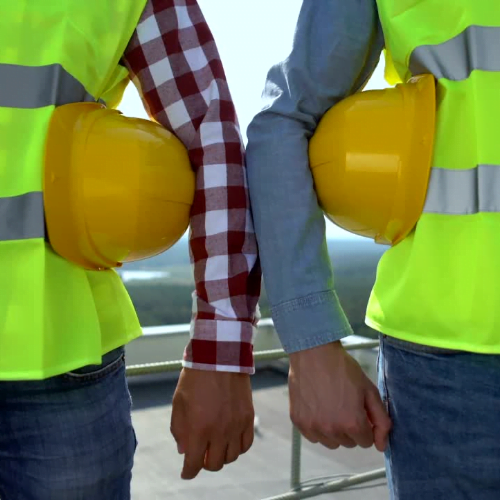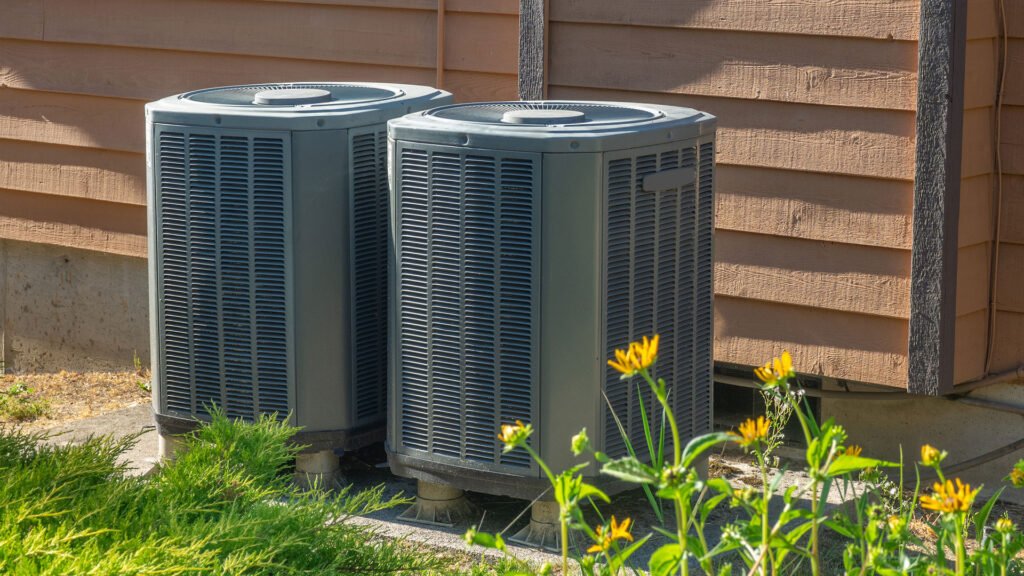Introduction
When it comes to HVAC systems, safety should always be a top priority. Whether you are a homeowner or a professional HVAC technician, following safety guidelines is essential to prevent accidents and ensure the well-being of everyone involved. In this blog post, we will discuss some important HVAC safety tips that you should keep in mind.
1. Regular HVAC Maintenance
One of the most important safety measures for HVAC systems is regular maintenance. This includes cleaning or replacing air filters, inspecting electrical connections, and checking for any signs of wear and tear. By keeping your HVAC system in good condition, you can prevent potential hazards and ensure its efficient operation.
2. Proper Ventilation
Proper ventilation is crucial for HVAC systems to function effectively and safely. Ensure that the vents and ducts are clean and free from any obstructions. Blocked vents can lead to poor air quality and can even cause carbon monoxide buildup, which can be extremely dangerous. Regularly inspect and clean the vents to maintain proper airflow.
3. Electrical Safety Tips
When working with HVAC systems, it is important to follow electrical safety guidelines. Make sure to turn off the power supply before performing any maintenance or repairs. Avoid using damaged or frayed electrical cords and always wear protective gloves when working with electrical components. If you are unsure about any electrical work, it is best to consult a professional.
4. Proper Handling of Refrigerants
Refrigerants are an integral part of HVAC systems, but they can be hazardous if not handled properly. If you are a homeowner, never attempt to handle refrigerants on your own. Only licensed HVAC technicians should handle refrigerants, as they have the necessary training and equipment to do so safely. Improper handling of refrigerants can lead to serious health issues and environmental damage.
5. Fire Safety
HVAC systems can pose a fire hazard if not properly maintained. Make sure that there is enough clearance around the HVAC unit and any flammable materials are kept away. Regularly check the electrical connections for any signs of overheating or loose wires. Installing smoke detectors and fire extinguishers near the HVAC system is also recommended to ensure quick response in case of a fire.
6. Personal Protective Equipment (PPE)
When working on HVAC systems, it is important to use the appropriate personal protective equipment (PPE). This includes safety glasses, gloves, and respiratory protection, especially when dealing with dust, mold, or other contaminants. PPE helps to minimize the risk of injuries or exposure to harmful substances.
7. Training and Certification
If you are an HVAC technician, it is crucial to undergo proper training and obtain the necessary certifications. This ensures that you have the knowledge and skills to work safely with HVAC systems. Regularly updating your knowledge through continuing education courses is also important to stay up-to-date with the latest safety practices and regulations.
8. Furnace safety tips
One of the most overlooked safety concerns when repairing or maintaining an HVAC system is carbon monoxide poisoning. When not properly maintained and monitored, your HVAC system could quickly become a health hazard either due to a damaged system, a diagnostic problem or inadequate maintenance. Because carbon monoxide is a colorless, odorless gas, it’s hard to detect, and prolonged exposure can lead to brain damage and even death. To protect you and your family, keep a carbon monoxide detector with fresh batteries near the furnace at all time. When dealing with any gas-burning system, be sure to follow furnace safety tips by turning off the gas and the power switch and following the manufacturer’s maintenance instructions. If you smell gas while maintaining your furnace, don’t try to fix the leak or shut off the gas yourself. Leave the house immediately and call your utility company’s emergency hotline.
9. Air conditioner safety
When it comes to air conditioner safety, always make sure you turn off the power switch when performing basic maintenance such as clearing debris from the outdoor unit or dusting off the evaporator coils. It’s best to have a qualified, licensed electrician service any electrical issue you may be having. Air conditioning units should be inspected regularly to make sure they’re not only safe, but also that potential issues can be caught early to avoid costly repair. Preventative maintenance will nearly always save you money in the long run.
Conclusion
HVAC safety should never be taken lightly. By following these safety tips, you can prevent accidents, protect your health, and ensure the efficient operation of your HVAC system. Regular maintenance, proper ventilation, electrical safety, refrigerant handling, fire safety, personal protective equipment, and proper training are all essential aspects of HVAC safety. Remember, when in doubt, always consult a professional HVAC technician for any maintenance or repairs.
Professional HVAC safety Tips
Of course, the best HVAC safety precaution you can take is to call Las Vegas HVAC professionals at Eco Friendly Air. One of our technicians can come out to your home to perform a diagnostic check and repair any issue you may have with your HVAC system. Rather than attempt repairs yourself, our certified and trained technicians will safely service your HVAC unit so you don’t have to get your hands dirty, and your furnace and air conditioner continue to keep you comfortable.










